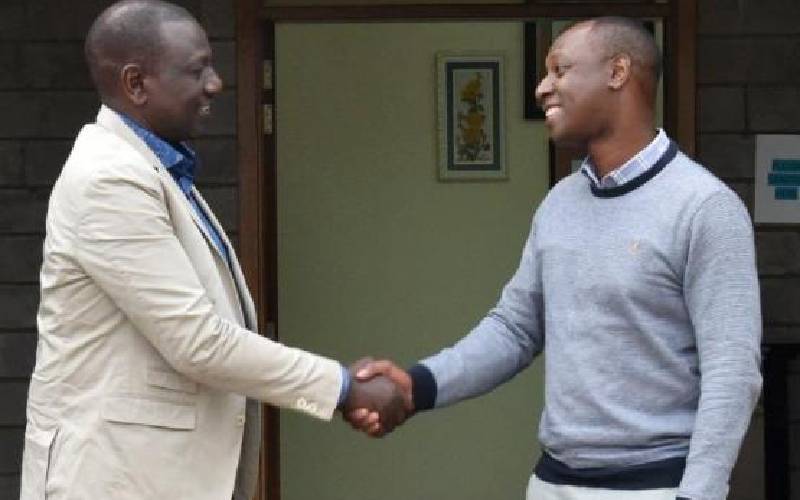×
The Standard e-Paper
Join Thousands Daily

Deputy President William Ruto and former Nairobi Deputy Governor Jonathan Mueke during their meeting at the DP's Karen residence.
Following days of public criticism over failure by his allies to explain the bottom-up economic model, Deputy President William Ruto has weighed in on the matter.